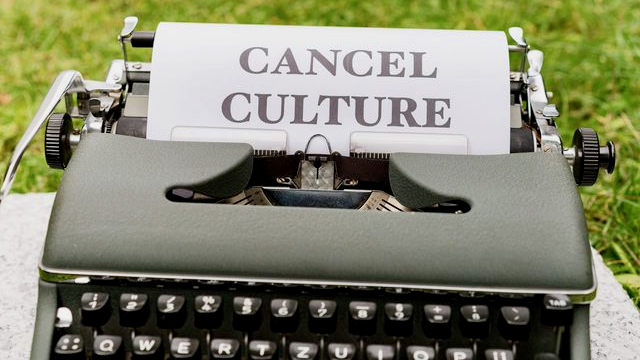If you have been following online drama, you may have come across the term cancel culture.
But what is cancel culture?
Pew Research stated that “cancel culture” originated from a relatively uncommon slang term, “cancel,” which refers to breaking up with someone, which was used in the 1981 song by the band Chic called Your Love Is Cancelled.
This word was used in movies and television before evolving and gaining popularity on social media.
In recent years, cancel culture has become a hotly debated concept in national politics. The meaning of it is the subject of numerous discussions and definitions. Whether it’s enforcing accountability, condemning others, or both, it became a broad conversation.
Lisha Gicana, a York University graduate with a bachelor of fine arts, said it’s something she is terrified of as a threat.
“I’ve seen a lot of people where cancel culture has been their downfall,” she said. “So it is something that I’m very scared of. It is something that you learn and grow from.
“I’m online and have seen a lot. In my time, the term cancel culture was coined,” Gicana said. “I have tiptoed when it comes to sharing my ideas. When I was younger, I’d never heard of that before. I can say I have witnessed its uprising.”
Pew also showed that in 2022, 61 per cent of U.S. adults say they have heard at least a fair amount about the phrase “cancel culture,” up from 44 per cent in 2020.
Today, cancel culture is still rising with no signs of stopping. The best example is the demise of the Ellen Show in 2022. The show was cancelled because of a workplace scandal that damaged Ellen DeGeneres’ reputation and the values of her show.
While the outcome of cancel culture might be extreme, some believe cancel culture doesn’t exist.
The main argument is cancel culture can’t be a force that can destroy people.
Tyler Shipley, a sociology professor at Humber, said cancel culture is not real.
“I don’t think cancel culture exists,” he said. “It’s fiction created out of the far right created from the political spectrum. It’s a way to try to signal fear over effort to transform society.
“They called it political correctness,” Shipley said.
It’s correct that it existed long before we named it “cancel culture.” Still, in recent years, most people have been involved in holding people accountable for their actions, especially celebrities.
The idea we can say and do whatever we want publicly — such as racism and sexism — and still be okay is incorrect because you can be a victim of cancel culture.
Look at Josh Giddey, then a rising 19-year-old NBA superstar. He woke up in November 2023 thinking it was a typical day, but it was nothing but that. Twitter got hold of a video of him partying with a then 15-year-old girl a few years earlier.
There weren’t enough details regarding the relationship, but people saw her age and attacked him immediately. The news quickly spread, and a fellow teammate, whom he claimed to be his best friend, unfollowed him on social media.
This is now the new reality of cancel culture. You are not safe in this era. If you refuse to cancel someone who is cancelled, it can happen to you, too.
Yes, we might not be able to cancel someone for a very long time. Some might even come back after being cancelled, but that doesn’t mean it doesn’t exist, because at the moment when a person gets cancelled, they will lose something, whether it’s a job, money, reputation or something else.
It’s something we need to be careful of, but the specific cheat code to avoid not becoming a victim of it is to be a better person. Most agree people who say racist, sexist, and homophobic words should get cancelled for their disgusting actions.
And it’s right. You shouldn’t have a platform to be rude.

